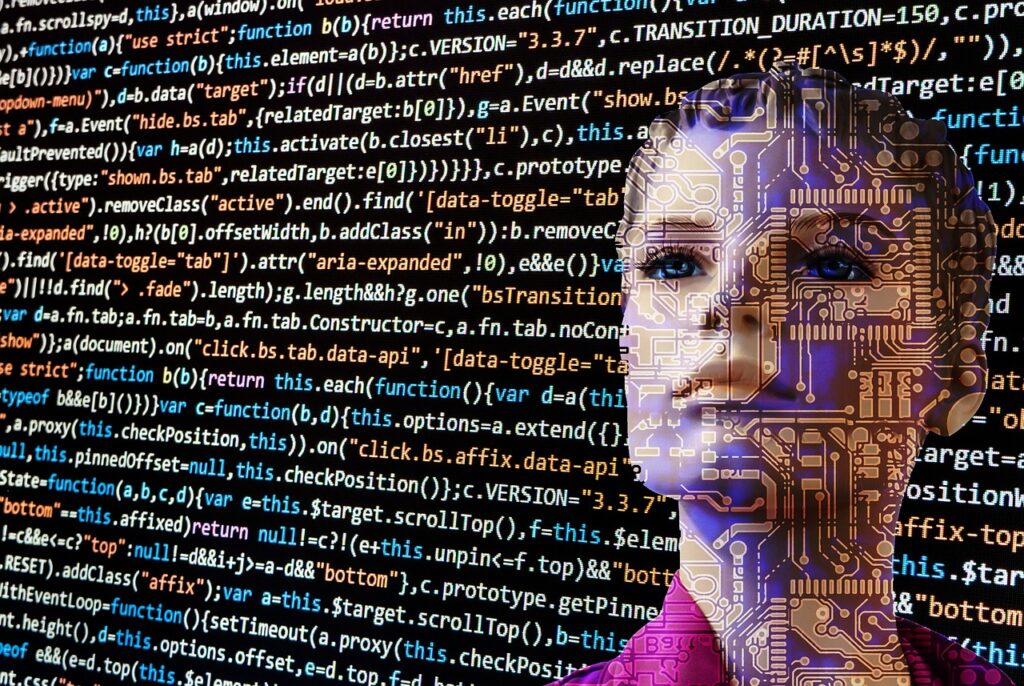Artificial Intelligence (AI) is a rapidly growing field that has become increasingly important in modern society. At its core, AI refers to the development of computer systems that can perform tasks that would typically require human intelligence, such as learning, problem-solving, and decision-making. This technology has already had a significant impact on a wide range of industries, from healthcare to finance to entertainment.
What is Artificial Intelligence?
AI is a complex field that encompasses a variety of different technologies and approaches. At its most basic level, AI refers to computer systems that can perform tasks that would typically require human intelligence. However, the technology has evolved significantly in recent years, and there are now several different types of AI that can be used for a variety of applications.
One of the most well-known examples of AI is AlphaGo, an AI program developed by Google’s DeepMind that was able to beat a world champion at the game of Go. This was a significant achievement, as Go is a highly complex game that is considered much more difficult for computers to master than other games like chess.
Tech
Spotify AI is another example of AI technology that employs machine learning algorithms to provide personalized music and podcast recommendations. By examining user data and behavior, Spotify’s AI can deliver highly accurate recommendations that are customized to each individual user.

DeepMind, the company behind AlphaGo, is renowned for its contribution to the healthcare industry by developing AI technologies. Its AI systems can scrutinize large quantities of medical data to assist healthcare providers in making more precise diagnoses and devising more effective treatments.
Microsoft AI is a prominent example of AI technology. It offers various AI tools and platforms such as Microsoft Azure Machine Learning, enabling developers to construct and deploy AI models in the cloud. Moreover, Microsoft Cognitive Services provides pre-built APIs to integrate intelligent features into applications.
In summary, AI is a diverse and rapidly growing field that has already had a significant impact on a wide range of industries. By developing computer systems that can perform tasks that would typically require human intelligence, AI has the potential to revolutionize the way we live and work in the future.
The Four Types of AI
While there are several different approaches to AI, most experts agree that there are four main types of AI: reactive machines, limited memory, theory of mind, and self-aware AI.
AI can be classified into different types based on their capabilities and functionality. The most basic type is reactive machines, which respond to specific inputs without utilizing past events. Automated manufacturing equipment that demands prompt and precise responses to input sets is a typical area where they find application.
In contrast, limited memory AI systems are equipped to make decisions based on previous events. For instance, a self-driving car may utilize limited memory AI to analyze data from previous trips and adjust its route based on traffic patterns.
Theory of mind AI is specifically developed to comprehend human emotions and beliefs, allowing for natural and intuitive interactions with humans. Virtual assistants and chatbots are among the applications that utilize this type of AI.
Finally, self-aware AI is the most advanced type of AI that possesses self-awareness and consciousness. Although self-aware AI is mostly a theoretical concept, some experts believe that it could eventually lead to the development of genuine artificial intelligence.
How Artificial Intelligence Works
AI systems rely on a variety of techniques to perform their tasks, including machine learning, deep learning, and natural language processing.
Machine learning is a method of teaching computers to learn from data, allowing them to improve their performance over time. This is often done through the use of neural networks, which are designed to mimic the structure of the human brain.
Deep learning is a subfield of machine learning that focuses on the development of neural networks that are capable of learning and improving on their own. This has led to significant advances in areas such as image recognition and natural language processing.
Natural language processing is a form of AI that aims to comprehend and interpret human language. Its applications are numerous, including virtual assistants and chatbots, which enable computers to interact with humans in a more natural and intuitive manner.
Applications of Artificial Intelligence
Various industries employ Artificial Intelligence (AI) in numerous applications.
- In the Healthcare sector, AI is facilitating the development of more precise diagnostic tools and improving patient outcomes.
- In Finance, AI is analyzing vast amounts of data to identify fraudulent transactions.
- In the Entertainment sector, AI is creating personalized recommendations and immersive experiences for users.
The Future of AI
As AI continues to evolve and improve, it is likely to have an even greater impact on society in the years to come. Some experts predict that AI could eventually surpass human intelligence, leading to a world in which machines are able to perform almost any task. However, others argue that there are significant ethical and societal challenges that must be addressed before AI can be fully integrated into our lives.
Conclusion
To sum up, society has already experienced a significant impact from the rapidly evolving field of artificial intelligence. Various industries, including healthcare, finance, and entertainment, are leveraging AI to enhance outcomes and provide tailored experiences to users. Despite the many challenges that remain, the potential advantages of AI are substantial, and it is poised to cntinue playing a critical role in shaping the future of our world.
